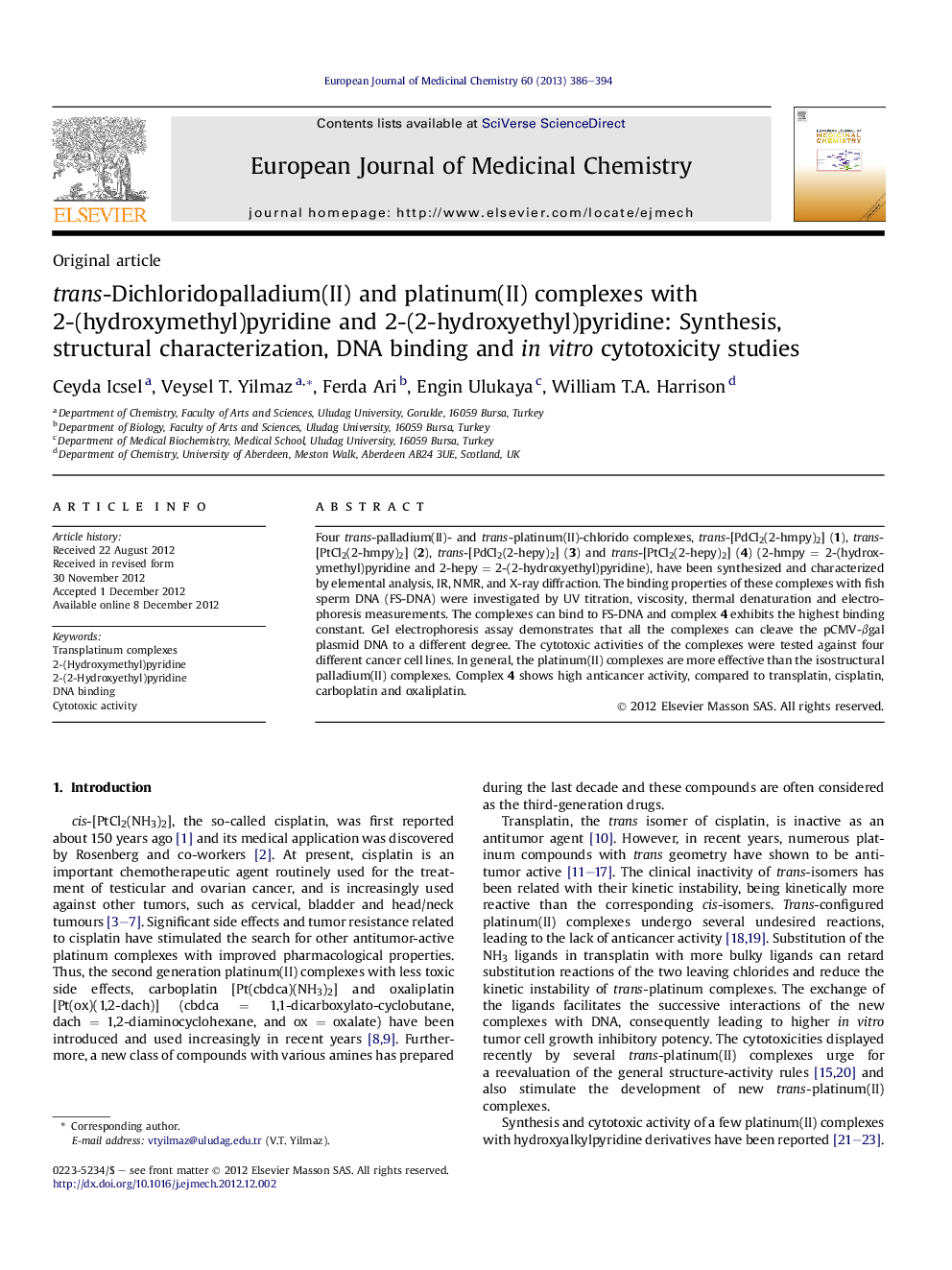| Article ID | Journal | Published Year | Pages | File Type |
|---|---|---|---|---|
| 1399285 | European Journal of Medicinal Chemistry | 2013 | 9 Pages |
Four trans-palladium(II)- and trans-platinum(II)-chlorido complexes, trans-[PdCl2(2-hmpy)2] (1), trans-[PtCl2(2-hmpy)2] (2), trans-[PdCl2(2-hepy)2] (3) and trans-[PtCl2(2-hepy)2] (4) (2-hmpy = 2-(hydroxymethyl)pyridine and 2-hepy = 2-(2-hydroxyethyl)pyridine), have been synthesized and characterized by elemental analysis, IR, NMR, and X-ray diffraction. The binding properties of these complexes with fish sperm DNA (FS-DNA) were investigated by UV titration, viscosity, thermal denaturation and electrophoresis measurements. The complexes can bind to FS-DNA and complex 4 exhibits the highest binding constant. Gel electrophoresis assay demonstrates that all the complexes can cleave the pCMV-βgal plasmid DNA to a different degree. The cytotoxic activities of the complexes were tested against four different cancer cell lines. In general, the platinum(II) complexes are more effective than the isostructural palladium(II) complexes. Complex 4 shows high anticancer activity, compared to transplatin, cisplatin, carboplatin and oxaliplatin.
Graphical abstracttrans-Palladium(II)- and trans-platinum(II)-chlorido complexes with 2-(hydroxymethyl)pyridine and 2-(2-hydroxyethyl)pyridine ligands were synthesized and structurally characterized. The binding of these complexes to fish sperm DNA was investigated. Their cytotoxicities were tested against the cancer cell lines Colo-320, Colo-741, H-1299 and 5RP7. A very high activity was observed for complex 4.Figure optionsDownload full-size imageDownload as PowerPoint slideHighlights► Synthesis and crystal structures of trans-dichloridopalladium(II) and platinum(II) complexes with 2-(hydroxyalkyl)pyridines. ► Comprehensive binding studies of the complexes with DNA. ► In vitro cytotoxic activity of the complexes against various cancer cells. ► Very high anticancer activity of trans-[PtCl2(2-hepy)2].
